Warning: This article contains discussion of suicide which some readers may find distressing
I had been in denial about my depression and anxiety. The isolation of the Covid-19 lockdowns was perfect for entrenching a harmful internal narrative of being worthless; a narrative built upon a lack of confidence in who I was.
My ex leaving me inflamed my sense of unworthiness, and I burned out trying to become a someone I thought was worthy of love.
The last-minute Christmas lockdown isolated me in my despair and I descended into suicidal thoughts.
Suicidal thoughts were a dark and commanding voice telling me I was worthless, unloveable, and that I should end my life. It drowned out any rational voice.
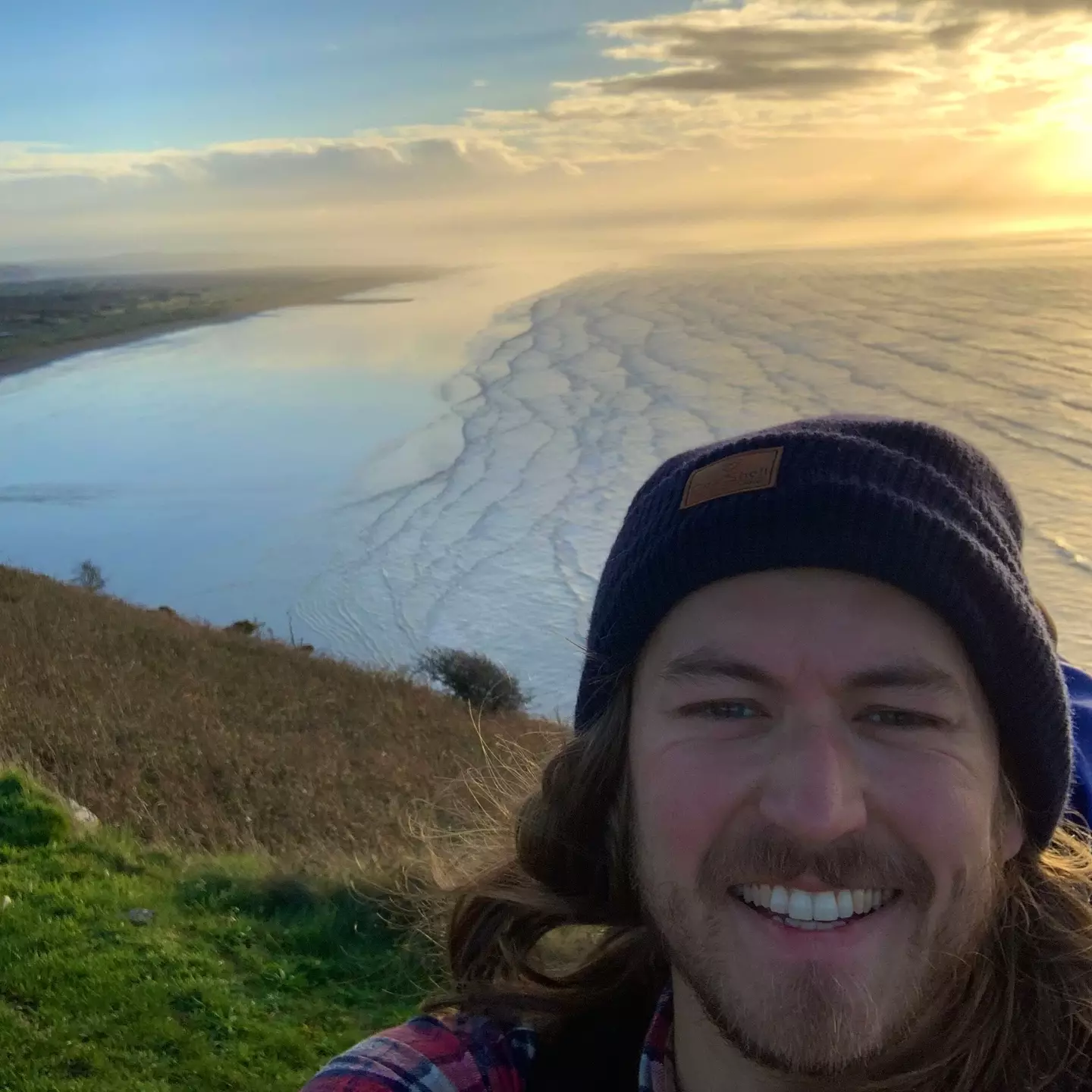
James during his walk of Great Britain in Carmarthenshire, Wales (Supplied)
When you are isolated with depressive thoughts, your internal narrative negatively warps your self-perception. I managed to tell my brother I was going through some ‘pretty dark times’ and the resulting conversation helped me realise I was loved, something I had been blinded to.
I later reached out to a friend who’d told me about his suicidal ideation, which made me feel comfortable talking. It’s why sharing our stories is so important, to ensure others don’t feel isolated with their own.
I was so grateful to be alive on Christmas Day. Those suicidal thoughts terrified me enough to accept I was mentally unwell.
Improving my diet, exercise and sleep were a huge factor in my recovery, but making time for doing things I loved that were forms of self-expression was just as important.
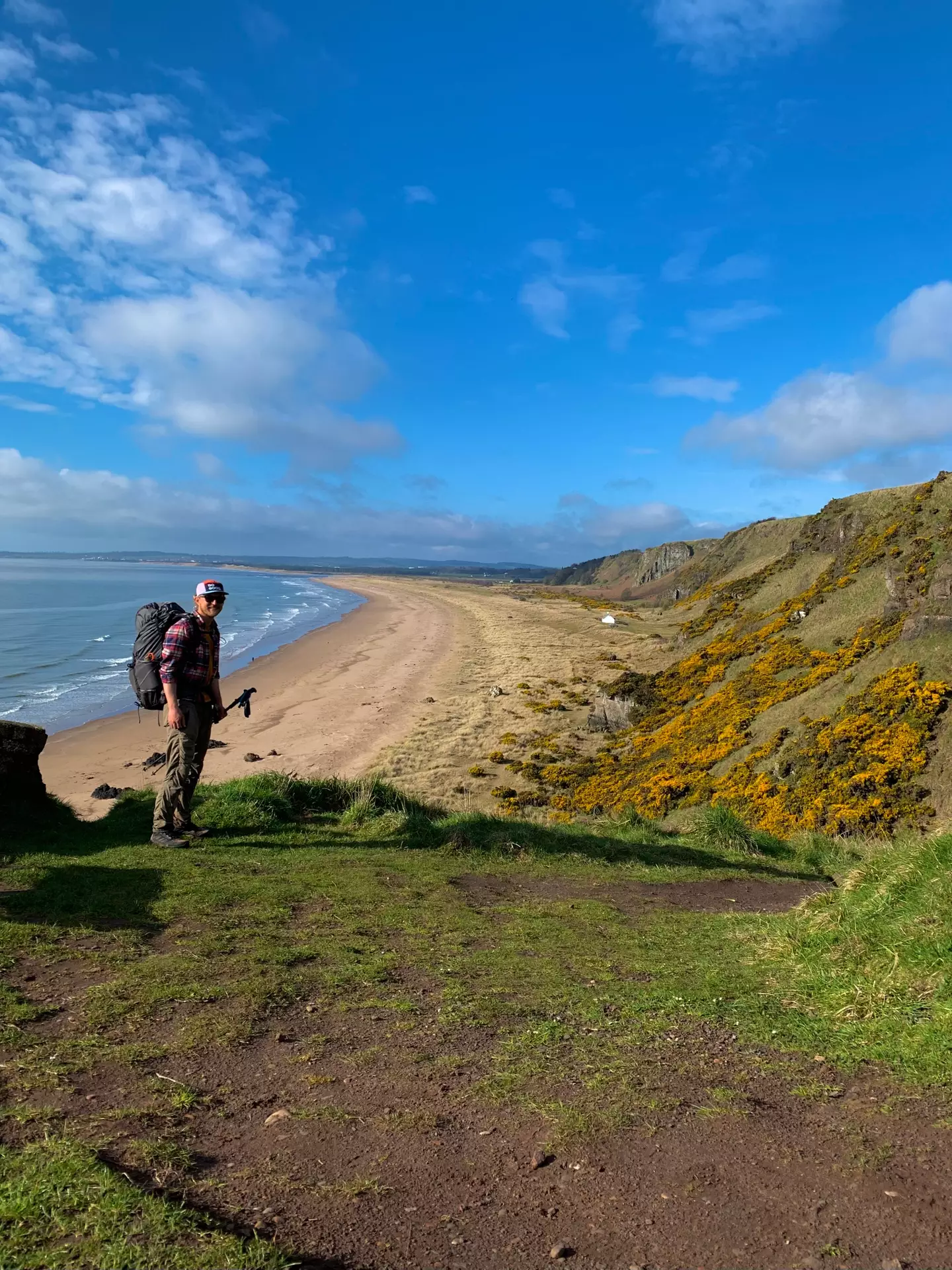
Walking along St Cyrus beach, Aberdeenshire (Supplied)
Pursuing my passion for being outdoors, of writing and drawing, encouraged me to commit to an old dream that would give me the space to do them full-time; to walk the coast of Great Britain.
On 3 October, 2022, I set out to walk the entire coast of Great Britain for the mental health charity that helped me.
I decided to walk for Mind, to litter pick the coast as I walked, and document the journey through photography, writing and drawing. All of my efforts were to raise awareness for mental health, and to show that the best of our lives is ahead of us. It would transform my life.
It was set to be a year-long, 6,600 mile journey around the coast, taking in the national three peaks. The walk began and ended from my home, but it would change the direction of my life entirely.
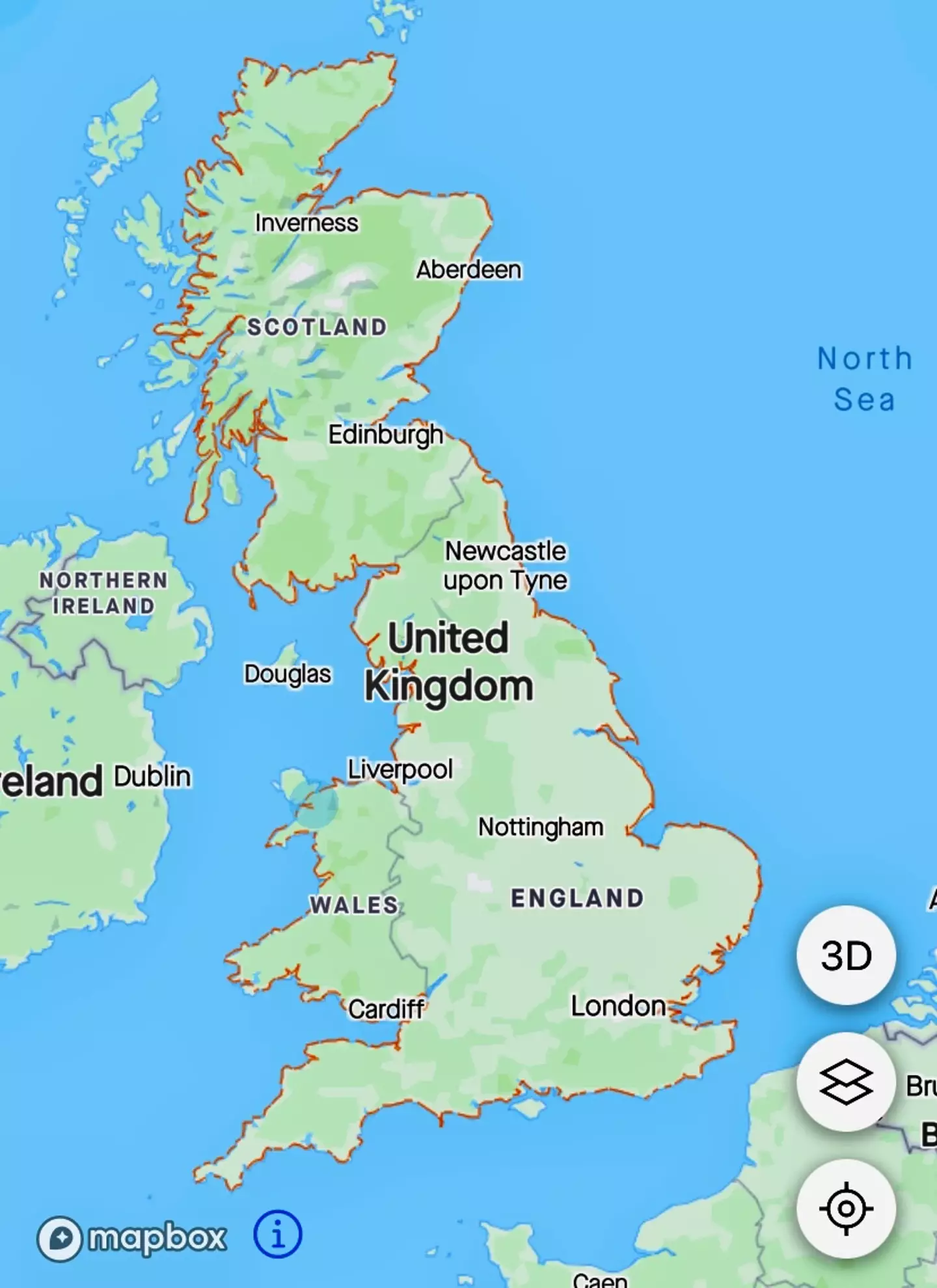
A map of my route, as recorded on Strava (Supplied)
It was the hardest things I’ve done, from walking south from Wales through winter to the pathless Scottish coastline.
Sometimes there was seven days between food shops, and I continuously ran out of food.
The groundsheet of my trusty tent began to leak on the third night, and then tore open later while I moved it to safety in a storm. It continued falling apart for three months of winter storms and ice, until I met a man in a Cornish pub who offered to buy me a new one.
I was so grateful for his help, and the hundreds of others who housed me, fed me, and washed my clothes. I couldn’t have done it without their help.
Walking for a mental health charity, people felt comfortable talking about their struggles. It encouraged me to open up about my crisis three years earlier.
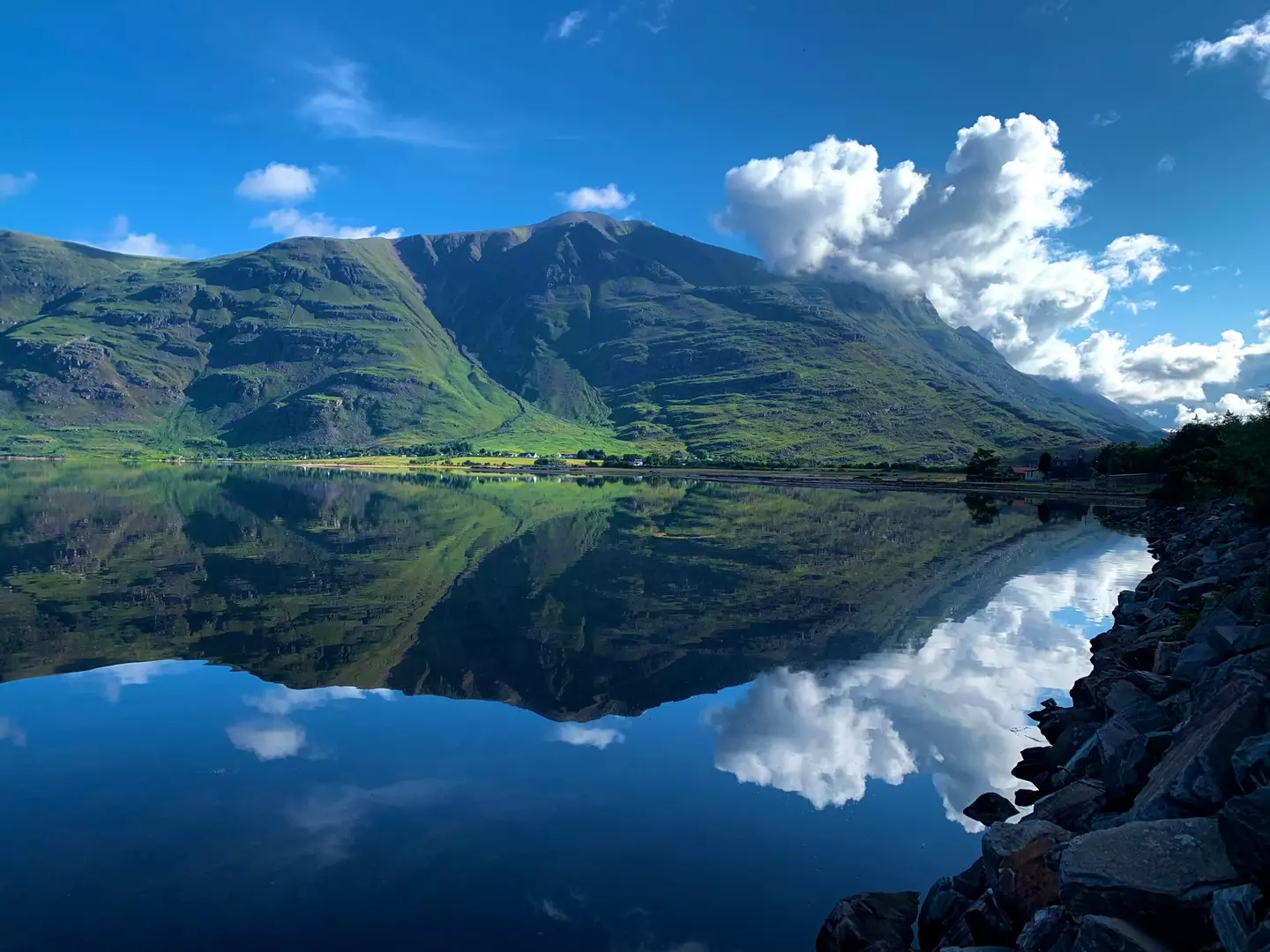
The mountains of Torridon, Scotland reflected in the sea loch below (Supplied)
I intuitively felt it was the right path for me, and to ignore that call felt like submitting to a life of expectations I had been trying to escape.
Suicidal ideation was a common experience among the people I met, and I would be confronted with the mental crisis encountering a woman about to take her life.
I had been walking for four months when our paths crossed on the south coast. It was early morning, and she was the only other person there.
I thought she was taking photos like me until she moved into a precarious position a little distance from me.
I waved at her to let her know I had seen her, but when she waved back and stayed put, I knew something was wrong.
I was walking the coast to prevent people from reaching crisis but I wasn’t prepared to stop someone ending their life. But I had to try, and walked over, trying to remain calm.
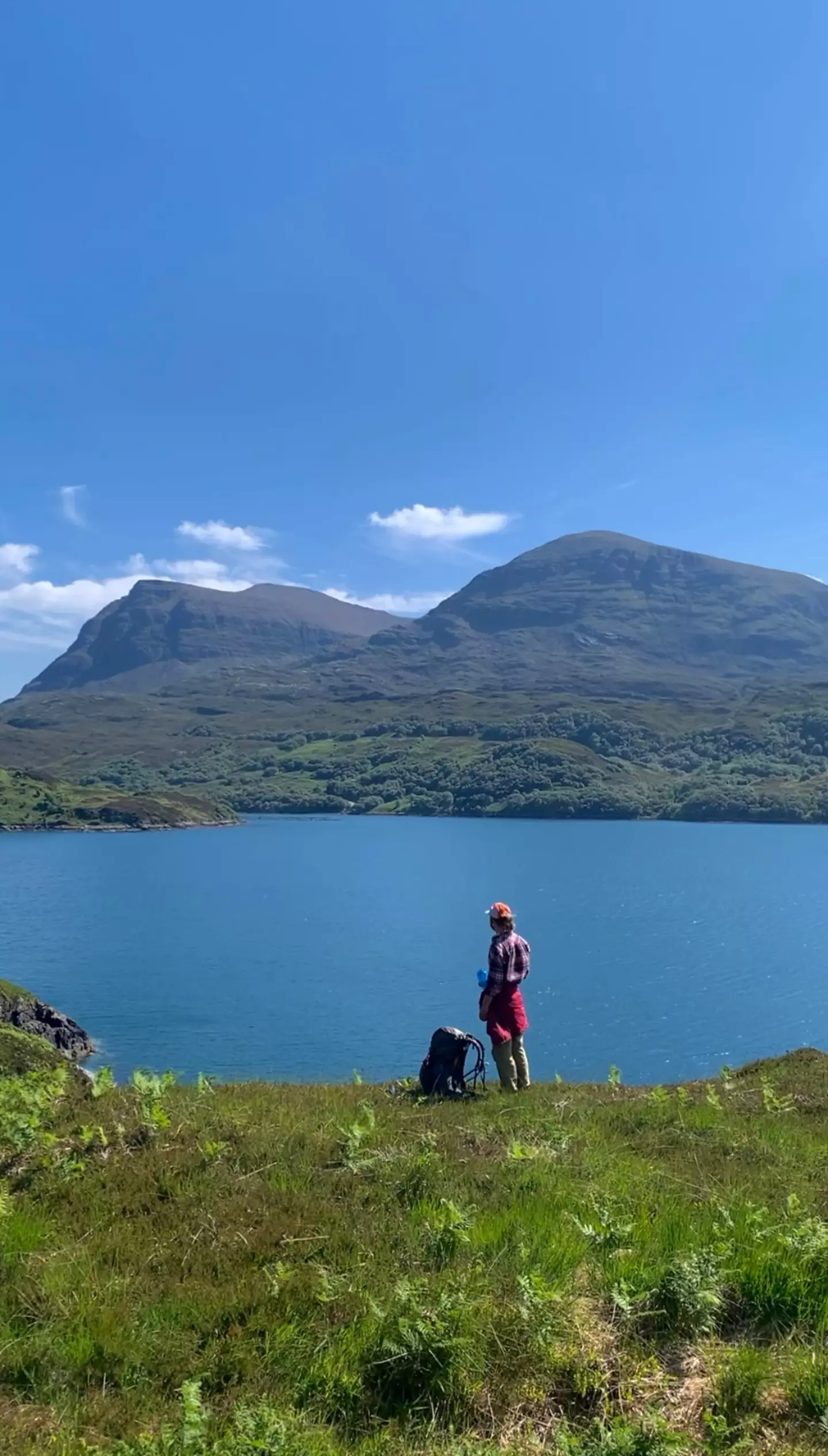
James taking in the view of the Assynt coastline, Scotland (Supplied)
Looking back, it seemed absurd to ask ‘Are you okay?’ to someone who was clearly suicidal, and she told me her plan to end her life.
Her voice was strangled with terror. Her eyes were pleading like she was passenger to what she was about to do.
I told her she didn’t have to do it, to come to safety, that it could get better. She just wanted her pain to end, and she was deaf to my banalities.
I didn’t know how to explain to her this wasn’t what she wanted, that the feeling would pass, that the story in her head wasn’t reality. My brain called for a torrent of words that clogged my throat and knotted my brain.
It was too much pressure to save a life, but I understood how she felt.
I told her, ‘I know how it feels’, and that connection disrupted her suicidal intent long enough for her to come to safety. She remained actively suicidal, and I was lucky that a local crisis unit and later emergency services intervened. I stayed with her until she was taken away to receive help.
Before she left, she said: “I liked when you waved at me, that was nice.”
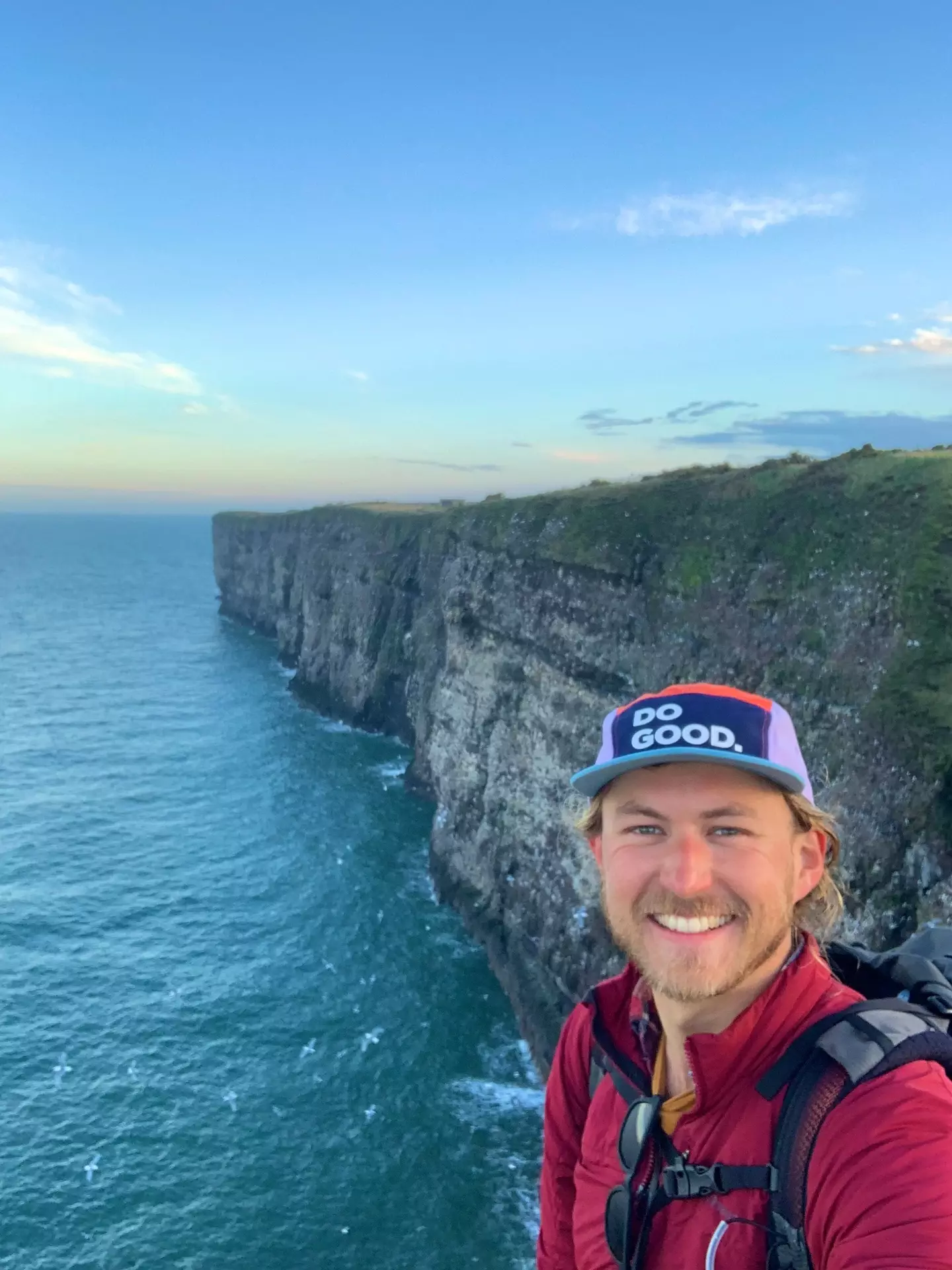
Parliaments of sea birds at RSPB Scotland Fowlsheugh, Aberdeenshire (Supplied)
I burst into tears walking away from her, gasping for air like I had been holding my breath for an hour.
I felt hollowed out with grief, and it took me a long time to shake the feeling I had failed her. I had prevented her death, but she was still suicidal when we parted ways. I would never see her again.
In 2022, 5,642 suicides were registered in England and Wales. one in 15 people in the UK will attempt suicide and one in five will experience suicidal thoughts in their lifetime.
These figures are only what we see of a national mental health iceberg. The endemic poor mental health that results in suicidal intent is what we don’t see below the surface. We need to work towards recognising the signs in ourselves and others.
After the event, I found myself drinking alone in Wetherspoons and going on Tinder. I stopped once I realised it was an attempt to numb the pain, and instead opened myself to feeling it so I could let it go. I returned to my self-care practice.
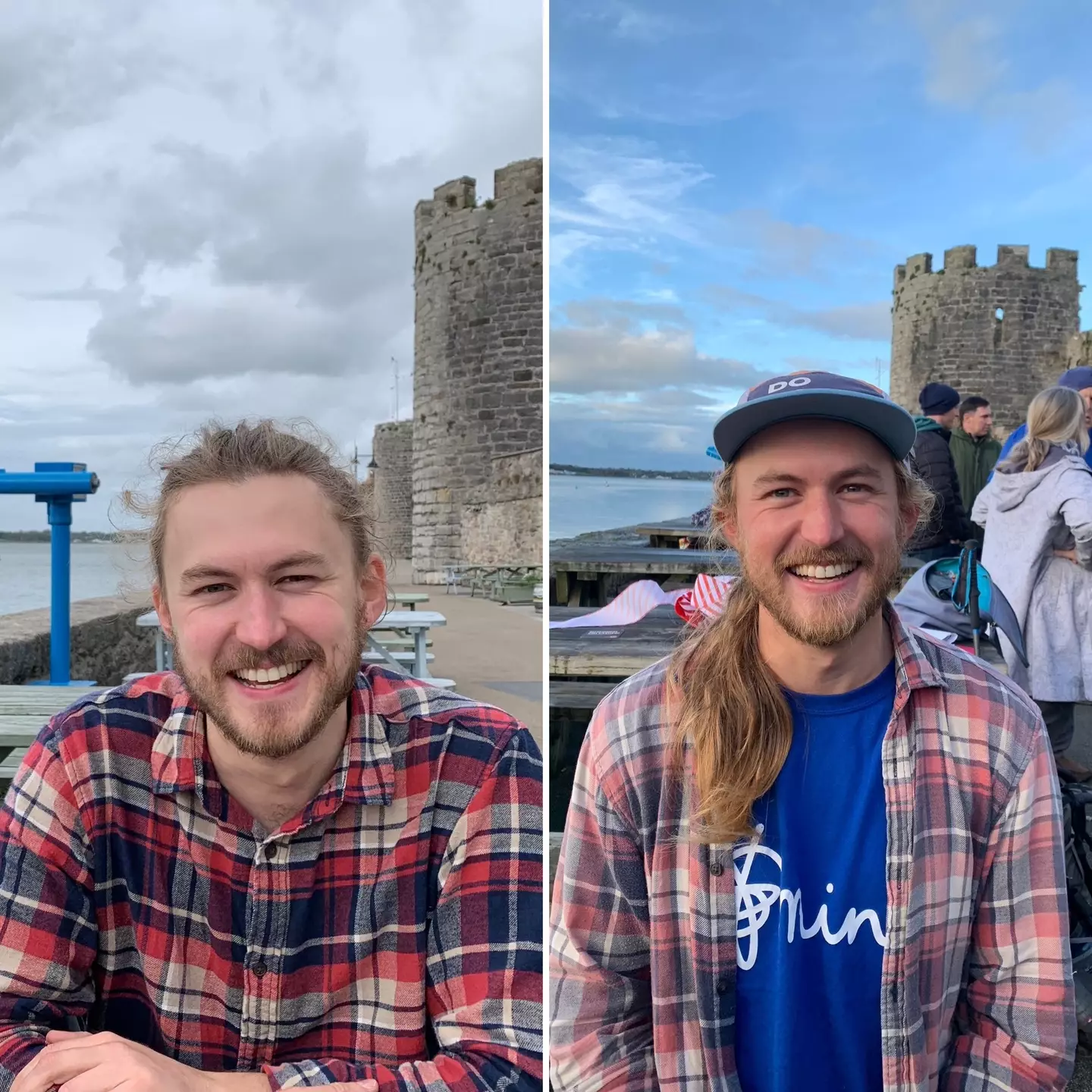
Day one and the final day walking the coast (Supplied)
Seeing someone suicidal surfaced a deeply rooted grief for my younger self gripped by that same dark compulsion years earlier. It was a grief that had disguised itself as an anger for my ex, who, by coincidence, moved to the Scottish coast while I walked.
It was surreal to meet my ex on my journey. Her leaving me had been the catalyst for my spiral, but if she hadn’t, neither of us would have been sitting there in an Inverness cafe, much happier. She was sorry, and through my forgiveness we finally found closure for a time stricken with mental health difficulties.
Shortly after, as I sat out a storm in Cape Wrath’s Kearvaig bothy, I got a message from a woman called Abi asking me out.
Abi had offered a free breakfast at the cafe where she worked months earlier, and while I was eating, she talked about birds she knew nothing about, then hid out of embarrassment.
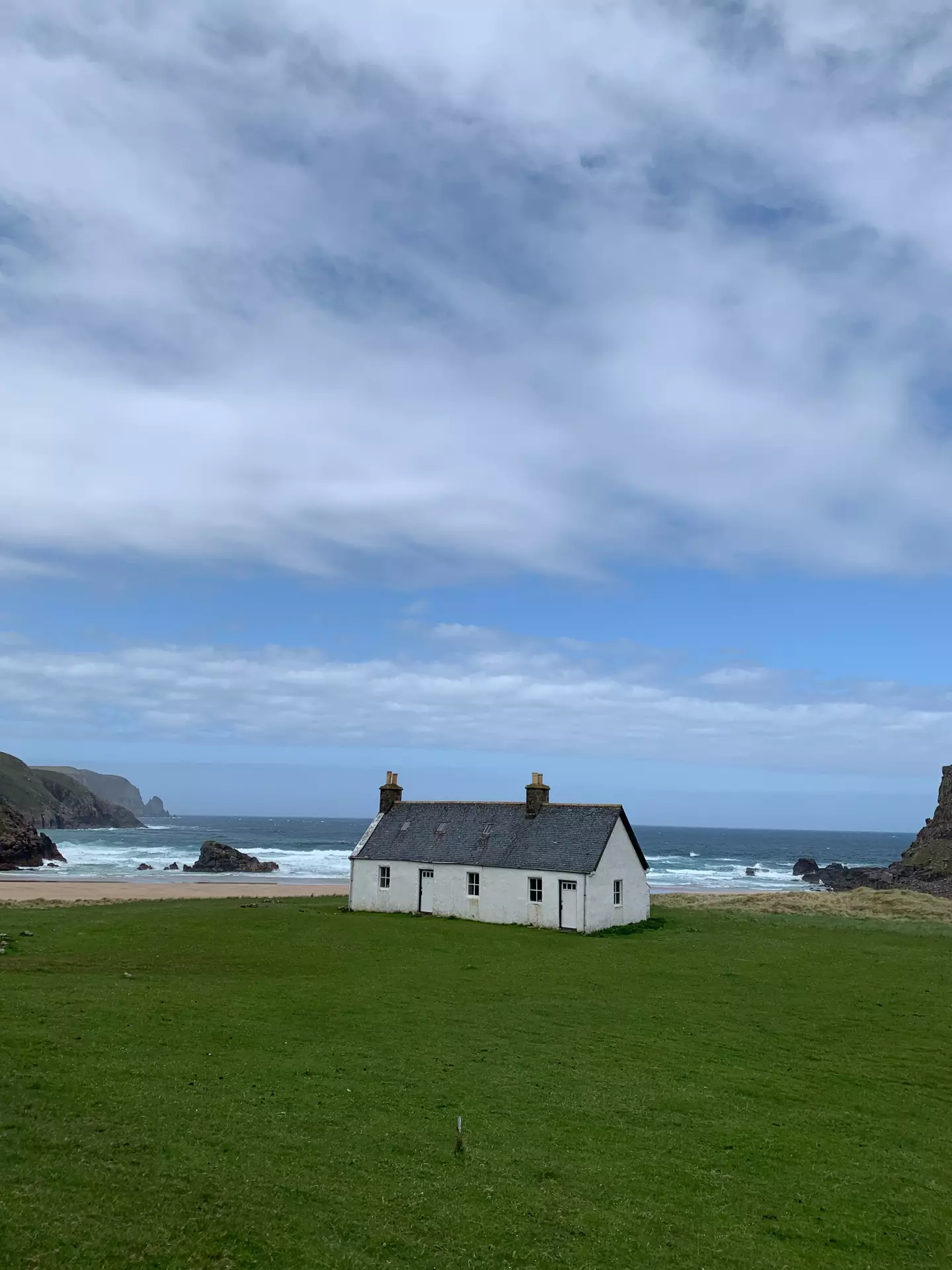
Kearvaig Bothy, Cape Wrath Peninsula, Scotland (Supplied)
In that brief meeting I thought: “There’s someone I could share my life with.”
She had a three-year-old daughter, so I assumed she was taken, and she thought I would be uninterested.
We began talking and quickly fell in love. We discussed what our relationship would mean, and how I would become a father figure to her daughter.
What had seemed impossible in my despair now seemed so natural. I couldn’t have known self-care would open me to becoming a father. We now live happily as a family.
If I had listened to those suicidal thoughts, I wouldn’t have walked the coast, met Abi, found closure, raised over £21,300 for Mind, or saved a life. I later discovered the suicidal woman made a full recovery.
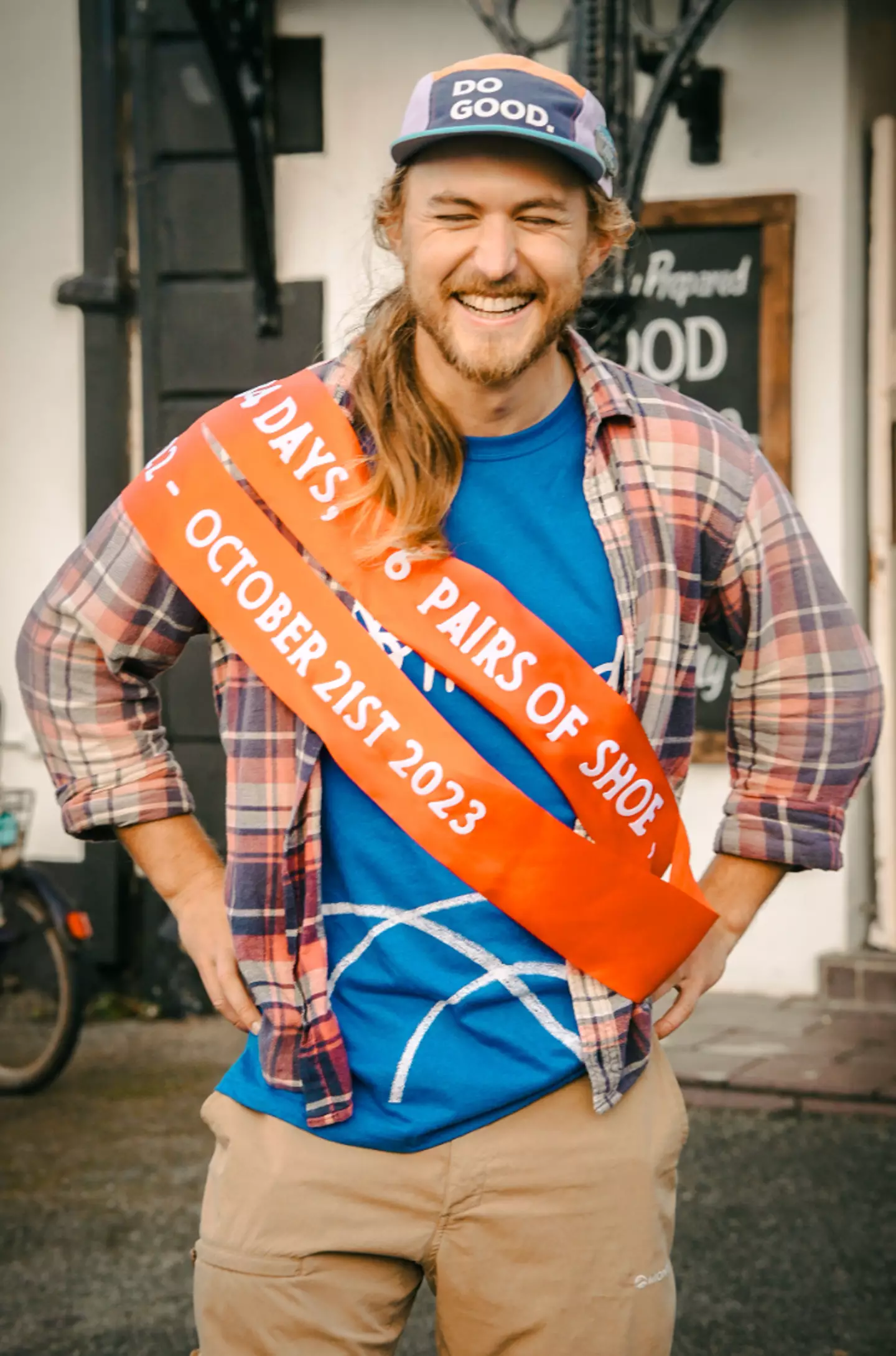
James celebrating walking around the entire coast of Great Britain (Supplied)
Speaking on BBC Radio 2 about my journey with the Reverend Kate Bottley, she caught me off guard by saying: “I’m so glad you’re still with us.”
I’m glad, too.
It might not always feel like it, but the best of our lives are always ahead of us. It’s incredible how far we can go when we look after ourselves and accept help from others.
You can donate to James’ Mind Walk here. You can follow James here. You can read James’ blog about the walk here.